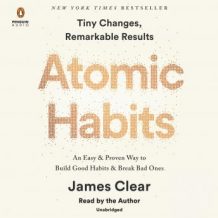Don’t Make Me Pull Over!: An Informal History of the Family Road Trip Audiobook
Don’t Make Me Pull Over!: An Informal History of the Family Road Trip Audiobook
- Jonathan Todd Ross
- Simon & Schuster Audio
- 2018-07-03
- 8 h 37 min
Summary:
“A lighthearted, entertaining trip down Memory Lane” (Kirkus Reviews), Don’t Make Me Pull Over! presents a nostalgic go through the golden age of family road trips—before portable Dvd movie players, smartphones, and Google Maps.
The birth of America’s first interstate highways in the 1950s strike the gas pedal on the road trip sensation and families were soon streaming—sans seatbelts!—to a variety of sometimes stirring, sometimes wacky locations. In the times before cheap flights, families didn’t so much about Don’t Make Me Draw Over!: An Informal History of the Family members Road Trip consider vacations as survive them. Between house and destination lay thousands of miles and dozens of annoyances, and with his family Richard Ratay experienced all of them—from getting crowded into the backseat with noogie-happy older brothers, to picking out a souvenir only to find a better one may have been had at another attraction, to coping with a father who didn’t believe in bathroom breaks.
Now, decades afterwards, Ratay gives “an amiable information…fun and informative” (New York Newsday) that “will go down like a cool lemonade on the hot summer’s time” (The Wall Road Journal). In hundreds of amusing methods, he reminds us of what once produced the fantastic American Family Street Trip so great, including twenty-foot “land yachts,” oasis-like Vacation Inn “Holidomes,” “Smokey”-spotting Fuzzbusters, twenty-eight glorious tastes of Howard Johnson’s ice cream, as well as the thrill of selecting a “great buddy” over the CB radio.
An “informative, frequently hilarious family narrative [that] perfectly catches the love-hate relationship many have with street trips” (Web publishers Regular), Don’t Make Me Pull Over! reveals the way the family members road trip had become, how its progression mirrored the nation’s, and just why those marvelous journeys that once brought households jointly—for better and even worse—have largely vanished.






